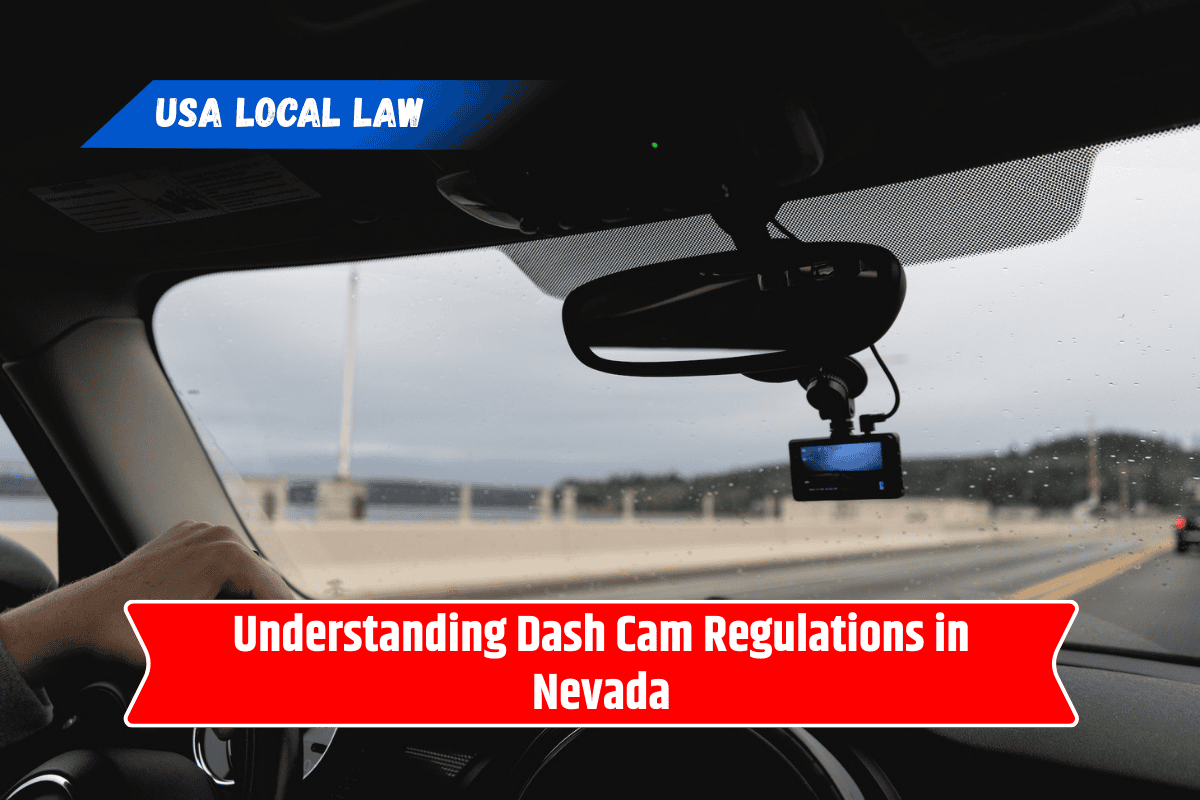Dash cams have become popular among drivers in Nevada and across the country. They’re useful for recording accidents, monitoring teen drivers, and even protecting against insurance fraud.
But before installing a dash cam in your car, it’s important to know the legal rules around using them in Nevada. Here’s a simple, clear guide to help you understand your rights and responsibilities.
Are Dash Cams Legal in Nevada?
Yes, dash cams are legal in Nevada. You are allowed to install and use a dash camera in your personal vehicle. However, the law sets some limits on where and how you can place it to make sure it doesn’t block your view or violate privacy laws.
Windshield Mounting Rules in Nevada
In Nevada, you cannot place a dash cam or any object on the windshield that blocks your clear view of the road. This is part of the state’s obstruction of view law, which is meant to keep drivers safe by ensuring full visibility.
So where can you legally mount your dash cam?
Dashboard: You can safely mount the camera on the dashboard, where it doesn’t block your view.
Behind the rearview mirror: This area is usually acceptable, as long as it doesn’t interfere with your driving.
Upper center of windshield (small area only): Nevada allows small devices to be attached in a specific area not larger than six inches in the lower left corner or four inches in the lower right corner of the windshield.
Dash Cams and Audio Recording Laws
Nevada is a one-party consent state when it comes to recording audio. This means:
You can legally record conversations in your car if at least one person in the conversation (including yourself) knows it’s being recorded.
You don’t need to inform passengers, but it’s considered polite and transparent to do so — especially with rideshare or taxi drivers.
However, if your dash cam is capturing private conversations of others without anyone’s consent, especially outside your vehicle, you could get into legal trouble.
Can You Use Dash Cam Footage in Court?
Yes. Dash cam footage can be used in legal situations such as:
Traffic accident investigations
Insurance claims
Criminal cases (with proper context and clear video)
Make sure the footage is:
Clear and time-stamped
Taken legally (e.g., not violating privacy or obstruction laws)
Stored securely and not edited in a misleading way
What About Rideshare Drivers in Nevada?
If you drive for Uber, Lyft, or any rideshare platform in Nevada, dash cams are allowed, but it’s strongly recommended that:
You place a visible notice in your car informing passengers that recording may take place.
You don’t record video or audio outside your vehicle in places where people expect privacy.
This helps avoid any complaints or legal issues, especially with passengers who may not be aware they are being recorded.
Best Practices for Using Dash Cams in Nevada
To stay within the law and avoid problems, follow these tips:
Mount the camera safely without blocking your view.
Inform passengers (especially in rideshare situations).
Use cameras with features like GPS and time stamps for better evidence.
Store videos securely and only share them when needed legally.
Avoid recording people in private settings without consent.
Using a dash cam in Nevada is completely legal — as long as you follow the state’s rules about placement, audio recording, and privacy.
Whether you’re a regular driver or a rideshare operator, understanding the law can help you protect yourself and others on the road. A properly placed and legally used dash cam can be a valuable tool for safety and accountability.
